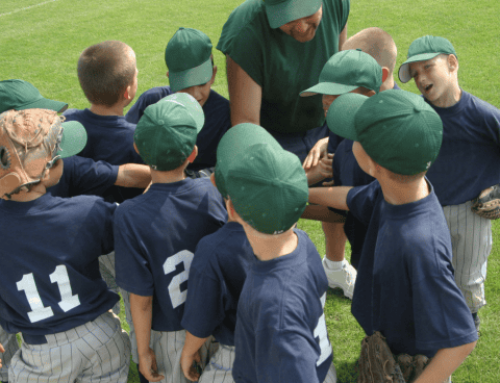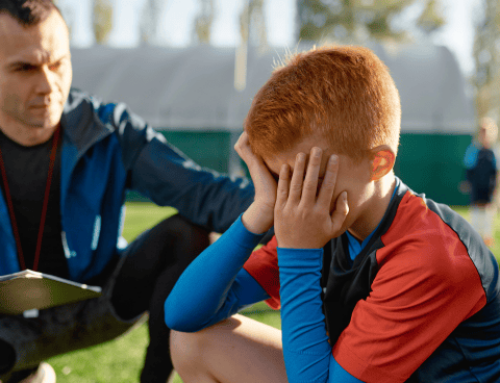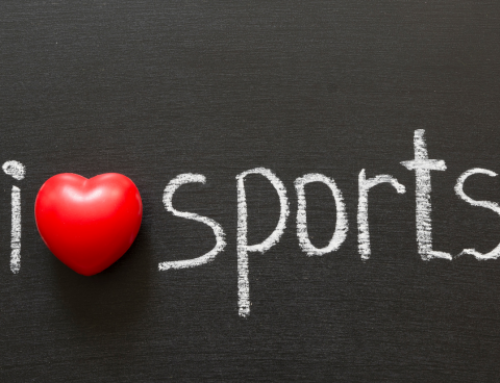The Best Training Tip For Athletes Of All Ages: SLEEP
Forget hiring private trainers, mental coaches, and buying fancy hi-tech training equipment. There is evidence-based scientific research that one simple thing can improve an athlete’s performance above all else, and it’s free and easy. It’s called SLEEP.
In 2003 Harvard and Penn’s medical schools studied four groups of people for two weeks. They controlled each group’s amount of sleep: Group 1 went two days without sleep, 2, 3, and 4 had four/six/eight hours, respectively. Then all the groups were monitored and tested in physical and psychological tasks. The obvious conclusion: as sleep time went down, so did their scores. But perhaps one of the most interesting things to come from the study; those that had four and six hours of sleep matched the negative results of the group that pulled two all-nighters! So even just missing out on a few hours of sleep per night can greatly affect a child’s performance on the field and in the classroom in drastic ways.
Most parents know this. They just don’t know how to add more time in a day to help their kids to get more sleep. Teenagers, in particular are sleeping less and are stressed more than ever before. Current studies show that between 60 and 70% of American teens are mild to severely sleep-deprived. Depression, anxiety, and mental illness have been steadily rising in teenagers, and a lot of it can be attributed to lack of sleep. Researchers from the University of Texas Health Science Center in Houston found that teens who don’t get enough sleep are four times as likely to develop major depressive disorders than their peers who do get enough sleep.
Yes, it’s hard to find the time in our kids’ over-scheduled and busy lives. But sleep must be a priority, above school work, sports, and above almost all else. There is a way to do it, but it might involve making some radical changes in the way you approach their school and their sports.
Nine Ways Enough Sleep (8-10 hours) Versus Lack Of Sleep Affects Youth Athletes
At School/Life
- Poor grades – Not enough sleep affects your ability to focus and retain information – two key components for successful students
- Poor eating habits – Lack of sleep lessens your ability for self-control. Therefore you eat too much or make unhealthy choices, such as giving in to cravings for sweets and fried foods.
- Reduces your ability to regulate emotions – Not enough sleep causes irritability and a short fuse, causing tantrums in younger children and emotional outbursts in older kids and can lead to aggressive behavior, depression, and lack of motivation.
- Makes you prone to acne – In the big scheme of things, this may not seem important, but for teenagers, this is a biggie.
On The Field:
- Reaction time – Maybe the single most important skill in sports. Even just one all-nighter can reduce your reaction time by 300%. Imagine what that sleepover birthday party did to your kid at his soccer game.
- Reduces injury – In a study of young athletes, the single most common predictor of injury was sleep, even more than hours of practice.
- Longer playing careers – In a study of some MLB players, there was a direct link to the length of career and sleep.
- Better accuracy and faster sprint times – A study was done using the Stanford men’s basketball team revealed that sleep has a direct correlation between shotting accuracy and sprint speed.
- Fewer mental errors – Motivation, focus, and memory are all linked to sleep. The less sleep you have, the more errors that occur in all areas of your decision making on the court or field.
RECOMMENDED FOR YOU
MOST POPULAR
The Best Training Tip For Athletes Of All Ages: SLEEP
Forget hiring private trainers, mental coaches, and buying fancy hi-tech training equipment. There is evidence-based scientific research that one simple thing can improve an athlete’s performance above all else, and it’s free and easy. It’s called SLEEP.
In 2003 Harvard and Penn’s medical schools studied four groups of people for two weeks. They controlled each group’s amount of sleep: Group 1 went two days without sleep, 2, 3, and 4 had four/six/eight hours, respectively. Then all the groups were monitored and tested in physical and psychological tasks. The obvious conclusion: as sleep time went down, so did their scores. But perhaps one of the most interesting things to come from the study; those that had four and six hours of sleep matched the negative results of the group that pulled two all-nighters! So even just missing out on a few hours of sleep per night can greatly affect a child’s performance on the field and in the classroom in drastic ways.
Most parents know this. They just don’t know how to add more time in a day to help their kids to get more sleep. Teenagers, in particular are sleeping less and are stressed more than ever before. Current studies show that between 60 and 70% of American teens are mild to severely sleep-deprived. Depression, anxiety, and mental illness have been steadily rising in teenagers, and a lot of it can be attributed to lack of sleep. Researchers from the University of Texas Health Science Center in Houston found that teens who don’t get enough sleep are four times as likely to develop major depressive disorders than their peers who do get enough sleep.
Yes, it’s hard to find the time in our kids’ over-scheduled and busy lives. But sleep must be a priority, above school work, sports, and above almost all else. There is a way to do it, but it might involve making some radical changes in the way you approach their school and their sports.
Nine Ways Enough Sleep (8-10 hours) Versus Lack Of Sleep Affects Youth Athletes
At School/Life
- Poor grades – Not enough sleep affects your ability to focus and retain information – two key components for successful students
- Poor eating habits – Lack of sleep lessens your ability for self-control. Therefore you eat too much or make unhealthy choices, such as giving in to cravings for sweets and fried foods.
- Reduces your ability to regulate emotions – Not enough sleep causes irritability and a short fuse, causing tantrums in younger children and emotional outbursts in older kids and can lead to aggressive behavior, depression, and lack of motivation.
- Makes you prone to acne – In the big scheme of things, this may not seem important, but for teenagers, this is a biggie.
On The Field:
- Reaction time – Maybe the single most important skill in sports. Even just one all-nighter can reduce your reaction time by 300%. Imagine what that sleepover birthday party did to your kid at his soccer game.
- Reduces injury – In a study of young athletes, the single most common predictor of injury was sleep, even more than hours of practice.
- Longer playing careers – In a study of some MLB players, there was a direct link to the length of career and sleep.
- Better accuracy and faster sprint times – A study was done using the Stanford men’s basketball team revealed that sleep has a direct correlation between shotting accuracy and sprint speed.
- Fewer mental errors – Motivation, focus, and memory are all linked to sleep. The less sleep you have, the more errors that occur in all areas of your decision making on the court or field.











